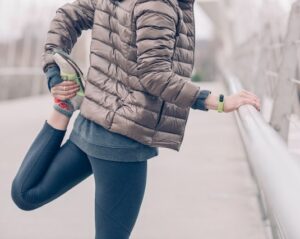When preparing for any activity or sport, it is good to be in a decent physical shape before actually undertaking said activity. For some activities, a better physical form will mean less pain along the way and a better overall experience.
Imagine going on a trekking trip, but you are in poor shape. That will not be a great experience, no matter the length or difficulty of the route. The same goes for cycling, especially if there is a plan to do any remotely difficult cycling routes, whether as an amateur or professional.
Here is why exercise is important for cyclists, exercise other than riding a bike.
Cyclists Engage Only Some Muscles When Riding

The first reason why you should consider exercising prior to or while cycling actively, is your own health. Cycling is a great activity, but it has its own problems when it comes to activity-specific injuries or cons.
Firstly, cycling places you in a seated position. This has a negative effect on the hamstrings, hip flexors, back muscles, to name a few. Given the position, some muscles are always in a flexed position, while others are stretched. Active sitting is still sitting and exercise which engages the otherwise dormant muscles, will be beneficial, health-wise, in the long run.
Preparing for More Difficult Routes
Yes, one could cycle harder and train cycling as they would any other endurance-based sport, like running, in three different ways, VO2Max, tempo and long-slow distance. However, these are the basics of any endurance sports, which means they should already be implemented in a workout routine.
What is often neglected are strength exercises. Squats, deadlifts, and definitely, the upper body. While cyclists want to avoid hypertrophy (muscle growth) in their upper bodies, they want them strong enough not to present a problem on a stage race, not to mention a more intensive mountain bike race.
Stretching for Longevity and Health

A flexible muscle is less likely to break or be pulled and injured. Flexibility comes at the price of explosive strength, but a cyclist does not need to be as flexible as an Olympic gymnast. They should implement flexibility workouts on a daily basis, if possible. Stretching the entire body is recommended, but especially the parts which are in a contracted position most of the time when cycling.
Being Stronger Equals a Better Cycling Experience
Nobody wants to feel so fatigued that they are at risk of falling off their bicycle. With that in mind, working out on a regular basis prior to any longer tour is recommended, which goes the same for races. However, one should not only rely on their physical training to have a great time on a tour or race, or even a joyride.
Using common sense and familiarity with your own limits, one should always set a pace which will get them through to the end, without risk of injury or burnout.
Exercise is important for every sport and the same goes for cycling, which while seeming easy to those looking in, can be very difficult, even outside races and tours.

